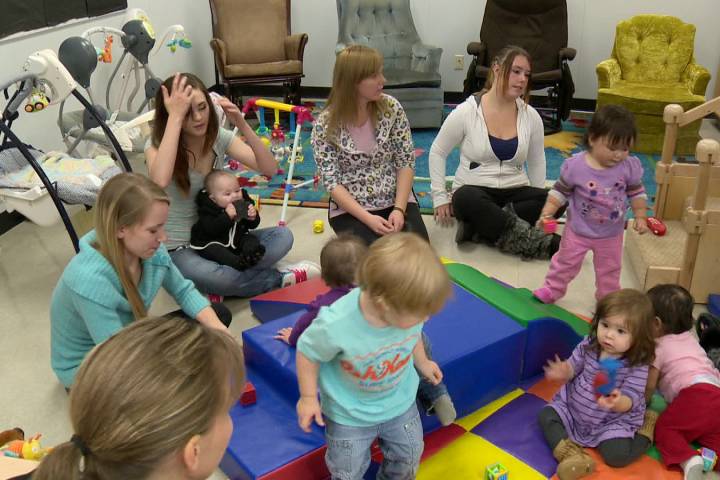The Fraser Institute is warning that British Columbia’s goal of universal child care could be costly to tax payers.

The independent public policy think-tank released a study on Thursday into Quebec’s child care model and the things that B.C. can learn from it.
“B.C. is not the first jurisdiction to go down the path of government-subsidized daycare — Quebec did it 20 years ago, and Quebec’s experience should serve as a warning, not a blueprint,” said Vincent Geloso, Fraser Institute researcher.
“Policymakers in B.C. should heed Quebec’s warning, and instead consider providing resources directly to families to help cover the costs of whatever individual approach to daycare works best for them.”
The study finds that Quebec’s program has proven costly, with the provincial government spending $2.3 billion last year on its subsidized daycare program — an average of $9,772 per child.
Notably, Quebec’s daycare costs per child have doubled, after accounting for inflation, since the program was introduced in 1997.
There have already been some bumps in the road for British Columbia’s ambitious child care plan. The province has pledged $1 billion over the next three years, with benefits promised to kick in as early as April 1.
But child care operators are already struggling with the administrative costs and challenges with getting the $350-a-month fee break that was promised in the 2018 provincial budget.
WATCH HERE: Spring break child care headaches

“The administration part of it is a struggle to get this done for April 1. There’s a lot more questions that have come up now that the contracts are out. The math doesn’t make sense,”said Amanda Worms, owner of Little Owl Academy daycare.
Child care facilities have until March 27 to opt-in, and if they do sign on they must agree not to raise fees for the rest of the year. Operators are worried that they’ll be left holding the bag if they are met with an unexpected surge in costs.
The Fraser Institute found that even though subsidized day care leads to increased participation in the work force by women, the benefits won’t be felt as strongly in B.C. as they were in Quebec. The maternal employment rate in Quebec in 1997 was 69.7 per cent, rising to 83.1 per cent in 2017, while British Columbia’s rate last year was only slightly less at 78.8 per cent.
“Studies have generally found a positive effect from the Quebec daycare program on the labour supplied by parents, but several studies suggest this increase is not sufficient to offset the significant fiscal costs associated with delivering the program,” reads the study.
—With files from Simon Little and Aaron McArthur
- B.C. officer alleged sexual assault, CSIS had her investigated
- Alberta to overhaul municipal rules to include sweeping new powers, municipal political parties
- Military judges don’t have divided loyalties, Canada’s top court rules
- Norad looking to NATO to help detect threats over the Arctic, chief says




Comments